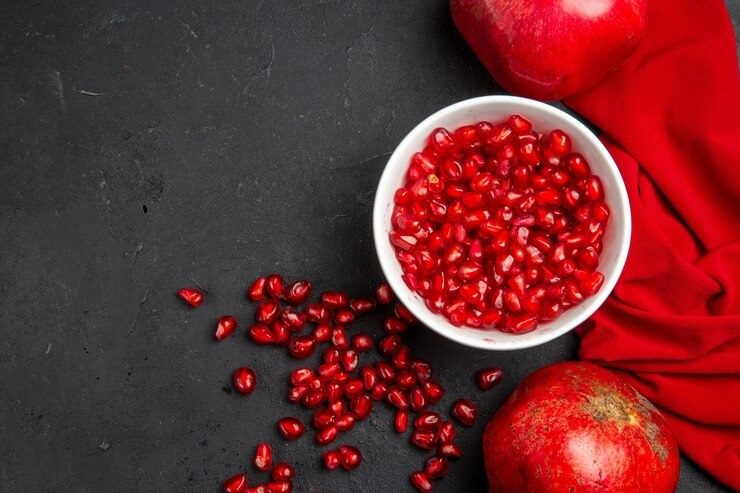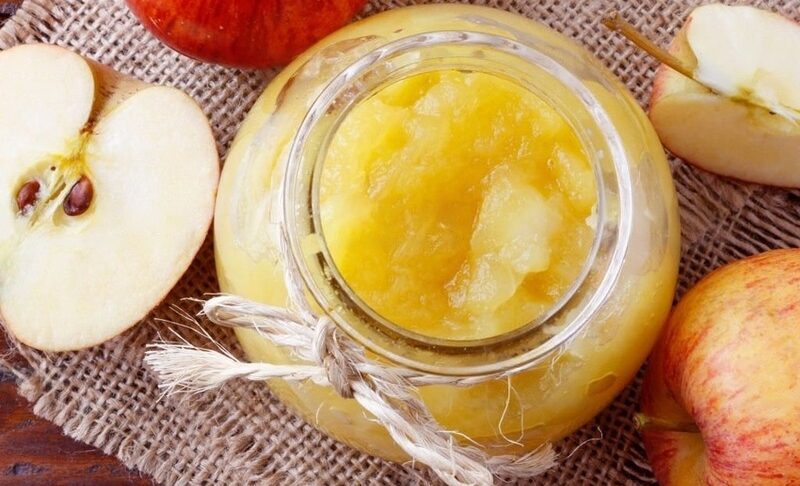Pomegranates are not as outwardly engaging with their jewel-like seeds but offer a burst of flavor and plenty of well-being benefits. Among the most common questions about this natural product is whether eating the seeds is safe. In this blog, we’ll delve can you eat pomegranate seeds, exploring their nutritional value, safety concerns, and how to combine them into your diet for an enhanced culinary experience.

The Undesirable Truth About Pomegranates
Pomegranates are famous for their dynamic, ruddy arils, and consumable seeds typified by succulent, translucent sacs. These seeds are not as secure to eat but are too packed with supplements such as fiber, vitamins C and K, and cancer prevention agents like punicalagin and anthocyanins. Be that as it may, whereas the seeds are eatable and nutritious, the biting white substance encompassing them is not tasteful and ought to be discarded.
Eating Pomegranate Seeds Safely
Consuming pomegranate seeds is by and large secure for most people, counting children and pregnant ladies when devoured in balance as a portion of an adjusted count of calories. Be that as it may, people with certain therapeutic conditions, such as kidney issues or hypersensitivities to related natural products like kiwi or apples, ought to exercise caution and seek counsel with a healthcare professional sometime after recently incorporating pomegranates into their diet.
Pomegranate Seeds: A Closer Look at the Wholesome Value
Pomegranate seeds have a noteworthy dietary profile, making them a profitable addition to any calorie count. They are wealthy in fiber, which helps in absorption and advances intestine wellbeing, as well as vitamins C and K, which bolster resistant work and bone wellbeing individually. Moreover, the cancer prevention agents found in pomegranate seeds offer assistance in combating irritation and oxidative stress, possibly diminishing the chance of constant maladies like heart disease and cancer.
Incorporating Pomegranate Seeds into Your Diet
There are various inventive ways to incorporate pomegranate seeds into your diet, including adding both flavor and nourishment to your meals. You can sprinkle them over servings of mixed greens for a burst of sweetness and crunch, mix them into smoothies for a reviving treat, or utilize them as an embellishment for dishes like yogurt, oats, or broiled vegetables. Pomegranate seeds, moreover, make a scrumptious addition to sweets such as cakes, puddings, and natural product salads.
Food Security Considerations
While pomegranate seeds are by and large secure to eat, it’s basic to hone legitimate nourishment security measures to diminish the hazard of foodborne illness. When selecting pomegranates, select natural products that are overwhelming for their price and have unblemished skin. Wash the natural product completely under running water, recently cut it open, and avoid devouring any seeds that show up mildew-covered or discolored. Store the remaining pomegranate seeds in a sealed holder in the fridge for up to one week.
Key Takeaways
- Pomegranate seeds are secure and nutritious to consume, providing a range of health benefits.
- Consolidate pomegranate seeds into your diet by including them in servings of mixed greens, smoothies, yogurt, and desserts.
- Hone legitimate nourishment security measures when selecting, planning, and putting away pomegranates to minimize the hazard of foodborne illness.
Conclusion
The reply to the address, “Can you eat pomegranate seeds?” is a resonating yes. Not only are they secure to devour, but they also offer a large number of well-being benefits and culinary conceivable outcomes. So go ahead, enjoy the succulent sweetness of pomegranate seeds, and procure the rewards of this delightful fruit.
FAQs
What do Pomegranate Seeds Taste like?
Pomegranate seeds have an interesting flavor that is both sweet and tart, with a burst of deliciousness. A few compare their taste to a combination of berries and citrus fruits.
Are there any Health Benefits to Eating Pomegranate Seeds?
Yes, pomegranate seeds are rich in fiber, vitamins C and K, and cancer prevention agents, which may offer assistance in advancing heart well-being, making strides in assimilation, boosting resistance, and diminishing inflammation.
How many Pomegranate Seeds can you Eat?
You can consume as many pomegranate seeds as you like, but balance is key. It’s best to devour them in sensible portions as a portion of an adjusted count of calories.

